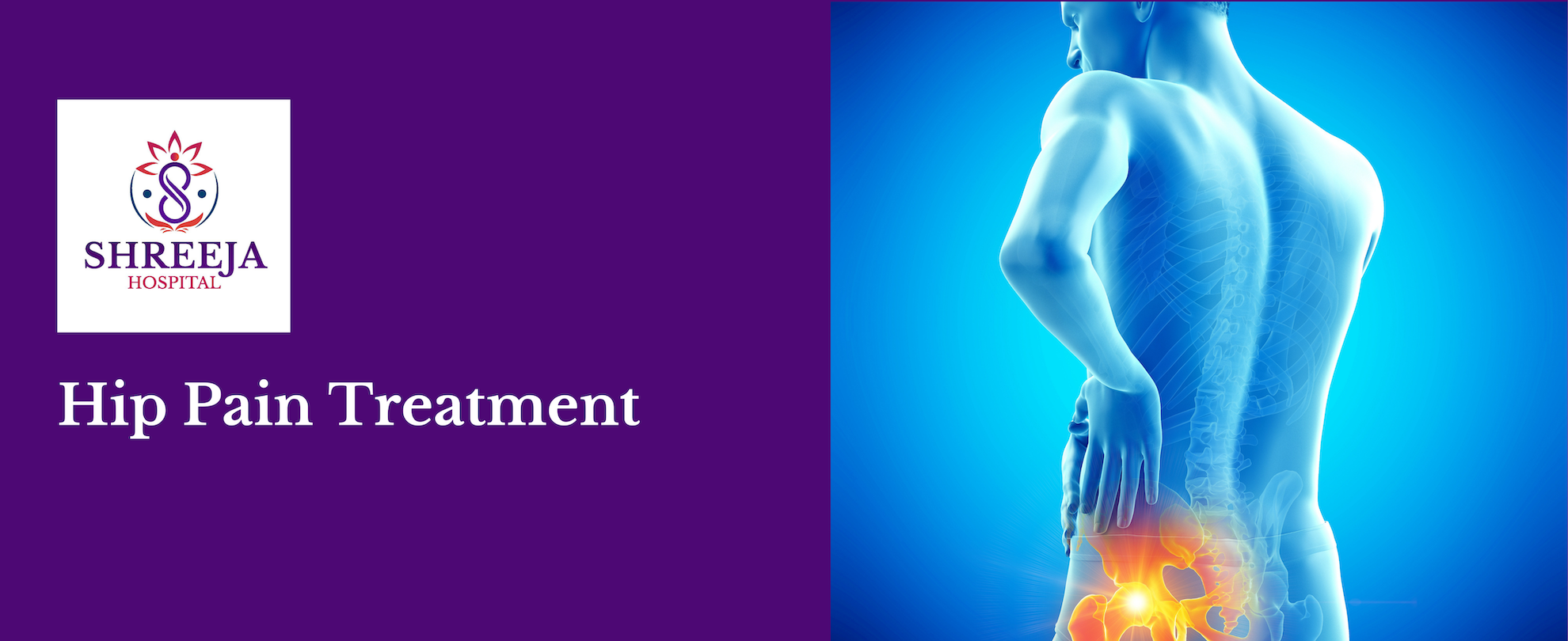
Hip Pain Treatment at Shreeja Hospital
Shreeja Hospital in Boduppal offers specialized treatment for hip pain, utilizing advanced, non-surgical methods to provide effective relief and improve patient quality of life.
Hip Pain Treatment Overview
Hip pain can arise from various conditions, affecting mobility and daily activities. At Shreeja Hospital, we focus on accurately diagnosing the causes of hip pain and providing tailored treatment options.
Common Causes of Hip Pain
- Hip Osteoarthritis: A degenerative condition characterized by the breakdown of cartilage between bones, leading to chronic pain. It is prevalent among the elderly but can also affect younger individuals due to trauma.
- Piriformis Syndrome: Pain in the buttocks and hip caused by irritation of the sciatic nerve due to degeneration or injury of the piriformis muscle.
- Trochanteric Bursitis: Inflammation of the bursa located around the greater trochanter of the femur, often resulting from trauma or overuse.
- Iliopsoas Bursitis: Inflammation of the iliopsoas bursa, leading to pain in the front part of the hip joint, commonly seen with repetitive use or trauma.
Symptoms
- Pain in the hip joint or surrounding areas
- Tenderness in the buttocks or groin
- Difficulty moving the hip or leg
- Pain that worsens with activity or at night
Diagnostic Procedures
To diagnose hip pain, Shreeja Hospital employs:
- Comprehensive physical examinations to assess pain and functionality.
- Imaging tests such as X-rays, MRIs, or ultrasound for detailed visualization of structural issues.
Treatment Options
Non-Surgical Approaches
- Pain Management Medications: Use of analgesics and anti-inflammatory drugs to alleviate symptoms.
- Physical Therapy: Tailored exercise programs designed to strengthen muscles and improve flexibility.
-
Joint Injections:
- Corticosteroid Injections: Administered into the hip joint or bursa to provide significant pain relief.
- Ultrasound-Guided Injections: Ensures accurate placement for better outcomes.
-
Regenerative Therapies:
- Platelet-Rich Plasma (PRP) Therapy: Utilizes growth factors from the patient's blood to promote healing.
- Stem Cell Therapy: Aims to regenerate damaged cartilage over a period of 3-4 months.
Frequently Asked Questions about Hip Pain
Common causes of hip pain include osteoarthritis,
piriformis syndrome, trochanteric bursitis, and iliopsoas
bursitis, each affecting mobility and daily activities in
different ways.
Shreeja Hospital provides comprehensive evaluations and
personalized treatment plans for hip pain, focusing on
non-surgical methods such as physical therapy, pain
management medications, and advanced therapies like PRP
and stem cell therapy.
Symptoms of hip pain can include discomfort in the hip
joint or surrounding areas, tenderness in the buttocks or
groin, difficulty moving the leg, and pain that worsens
with activity or at night.
Yes, Shreeja Hospital offers various non-surgical
treatments for hip pain, including pain management
medications, physical therapy, joint injections, and
regenerative therapies like PRP and stem cell therapy.
